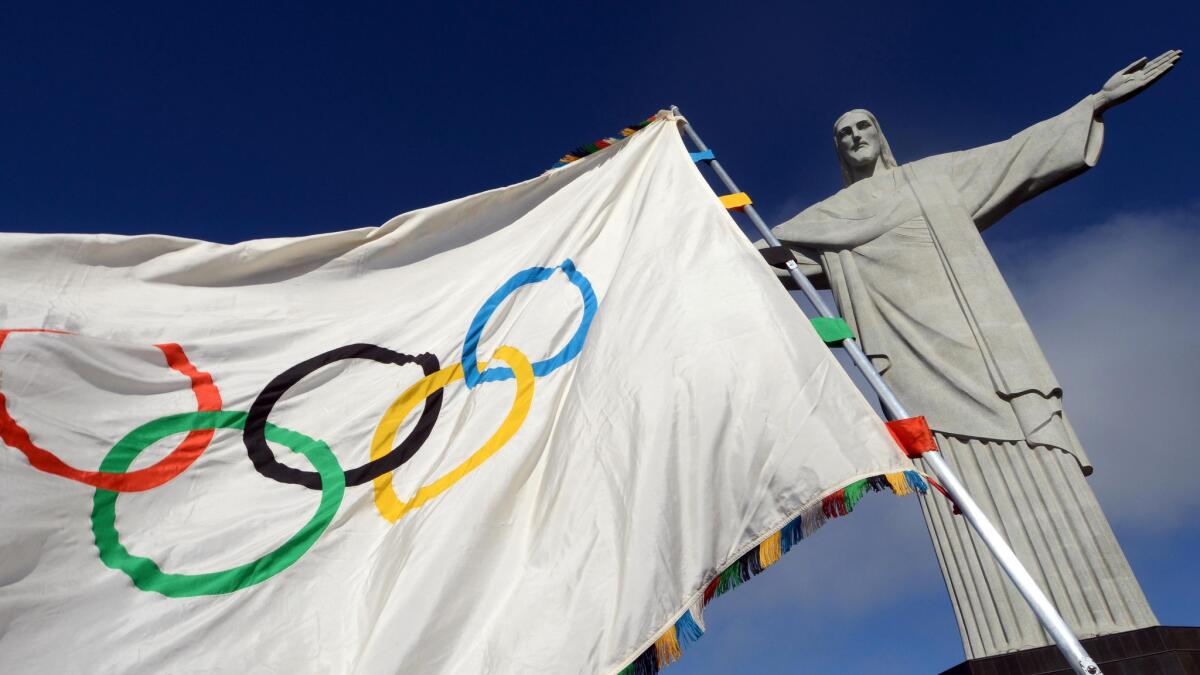Why the Rio Olympics are not likely to increase the spread of Zika across the world

- Share via
More than a dozen athletes have dropped out of the 2016 Olympic games in Rio de Janeiro citing fears of spreading the Zika virus, but a new study from researchers at Yale University finds that the international sporting event poses little risk of increasing the transfer of the virus around the world.
“Yes, Zika is a serious disease, but transmission linked to the Olympics and ParaOlympic Games is not a substantial public health threat and policy should be guided by this fact,” said Gregg Gonsalves, co-director of the Yale Global Health Justice Partnership and an author on the paper.
He added that the study, published Monday in Annals of Internal Medicine, supports similar findings by the World Health Organization and the Centers for Disease Control and Prevention.
See the most-read stories in Science this hour »
The researchers began by assuming a worst case scenario — that athletes and other visitors in Rio for the Olympic Games are just as likely to contract the disease as local residents.
(In reality, attendees of the Olympics are expected to have a significantly lower risk of getting Zika if they stay in screened or air-conditioned accommodations and use bug spray.)
Based on current models of Zika transmission among residents of Brazil, the authors calculated that a visitor’s chance of acquiring the virus ranges from 1 in 6,200 to 1 in 56,300. That translates to between 6 and 80 total infections expected among the hundreds of thousands of people attending the Olympics.
But those numbers tell only part of the story. The Zika virus does not hang around in a person’s body forever. Studies suggest that it will naturally clear out of the human system in about 10 days.
Therefore, the authors also estimated the total number of days that Olympic attendees could transmit Zika after returning to their home country. In the paper, they call this “person-days of viremia.”
(Viremia simply means the presence of a virus in the body).
“Think of it this way: if three people return from Rio to LA with exactly 4 days left of circulating virus in their bodies, they’d contribute 12 person-days of viremia,” Gonsavles said. “But what if they had contracted the disease when they first got to Rio and had 1 day each of viremia left? Then they’d be contributing three person-days of viremia.”
The authors write that 53.3% of Olympic attendees are expected to come from the United States, Canada, Europe, Oceania, Japan, South Korea and Israel, contributing an estimated 14.9 to 192.2 total person-days of viremia. However, the overall risk of mosquito-borne transmission is low in these countries, the authors write.
Some public health advocates have expressed fears that the international gathering will facilitate the spread of Zika to the African continent, but the authors note that travelers returning to African countries make up a significantly smaller percentage of Olympic attendees. Therefore, they expect only 1.1 to 14.5 person-days of viremia among this group.
Most of the remaining travelers are expected to return to Latin American countries that are already experiencing ongoing Zika transmission. The authors say the Olympics will have no noticeable effect on the disease in this region.
“The international spread of Zika virus is a significant concern, but the countries where we are worried about Zika introduction are not the ones sending thousands of travelers to the Olympics,” said Joseph Lewnard, a PhD student at Yale School of Public Health and a co-author on the paper. “Our outcomes support the WHO position that the Olympics are not going to be an important factor in this way.”
MORE IN SCIENCE
The human eye can detect a single photon, study finds
Brain training may forestall dementia onset for years, new study says
A mysterious case of Zika raises new fears of person-to-person transmission




